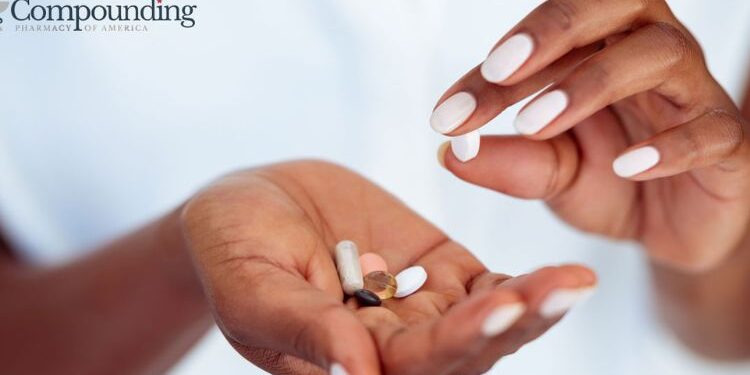Hormonal balance is crucial for overall health, particularly during significant transitions like menopause. One hormone that plays a pivotal role but often flies under the radar is pregnenolone. Commonly referred to as the “mother of all hormones,” pregnenolone is the precursor to several critical hormones, including progesterone, estrogen, testosterone, and cortisol. Understanding pregnenolone for menopause is vital, as it helps ease many symptoms associated with the transition. However, when pregnenolone levels drop too low, it can lead to a series of symptoms that often go unnoticed. This article explores low pregnenolone symptoms, how they affect menopausal women, and what you should be aware of to maintain hormonal balance during this stage.
What Is Pregnenolone and Its Role in Menopause?
Pregnenolone is a steroid hormone produced primarily in the adrenal glands, liver, and brain. Its primary function is a precursor or building block for other steroid hormones, such as estrogen, progesterone, and cortisol. During menopause, the body’s natural production of hormones like estrogen and progesterone decreases. This decline is often linked to many of the uncomfortable symptoms’ women experience, such as hot flashes, mood swings, and fatigue.
Pregnenolone plays a unique role during menopause. Since it converts into various hormones, having adequate levels of pregnenolone may help stabilize the other hormones that tend to fluctuate during this time. Therefore, supplementing or naturally increasing pregnenolone can be beneficial. However, low pregnenolone levels can exacerbate menopausal symptoms, leaving women feeling more exhausted and imbalanced. The importance of pregnenolone for menopause becomes clear when we explore the impact of its deficiency.
Symptoms of Low Pregnenolone
A deficiency in pregnenolone can lead to a variety of symptoms that mimic or worsen menopause symptoms. Here are some low pregnenolone symptoms you should be aware of:
-
Fatigue and Low Energy Levels
One of the most common symptoms of low pregnenolone is fatigue. Pregnenolone is integral in the production of cortisol, the hormone responsible for energy and stress response. When pregnenolone levels drop, cortisol production can be compromised, leading to chronic fatigue and low energy levels. Women going through menopause already face energy dips, but low pregnenolone can make these dips more severe. Constant tiredness or the feeling of never being fully rested even after a good night’s sleep is often a sign that your pregnenolone levels might be too low.
-
Memory Loss and Cognitive Decline
Pregnenolone has a strong connection to brain function and cognitive abilities. Low levels of pregnenolone are linked to memory problems and cognitive decline, both of which are common during menopause. Pregnenolone helps improve communication between brain cells and has a protective effect on the brain. It is often considered a “neurosteroid” because of its role in enhancing cognitive performance and mood. Women with low pregnenolone might experience brain fog, difficulty concentrating, or memory lapses.
-
Mood Swings and Depression
Hormonal imbalances during menopause often cause emotional instability, but low pregnenolone can make mood swings more severe. Pregnenolone helps regulate the balance of progesterone and estrogen, two hormones heavily involved in mood stabilization. Additionally, pregnenolone is known to have anti-anxiety and antidepressant properties. When levels drop, women may experience heightened feelings of anxiety, irritability, and depression. This is why pregnenolone for menopause is especially important—not only does it help balance reproductive hormones, but it also supports mental health.
-
Joint and Muscle Pain
Joint and muscle pain is another symptom that can be aggravated by low pregnenolone. This hormone plays a role in reducing inflammation, which is crucial for joint and muscle health. Without sufficient pregnenolone, inflammation levels in the body may rise, leading to stiffness, pain, and swelling in the joints. Women with low pregnenolone may notice an increase in muscle aches, tension, or even arthritis-like symptoms.
-
Decreased Libido
Pregnenolone deficiency can also negatively impact libido. Low levels of this hormone can reduce the production of estrogen and testosterone, both of which are crucial for maintaining sexual drive. Many women experience a decrease in libido during menopause due to fluctuating hormone levels, and low pregnenolone can worsen this problem. If you’re experiencing a sudden or prolonged drop in sexual desire, it could be linked to low pregnenolone levels.
-
Skin Changes
Pregnenolone is involved in the production of hormones that help maintain skin elasticity and hydration, particularly estrogen and progesterone. Low pregnenolone levels can lead to dry, thinning skin and an increase in wrinkles and fine lines. During menopause, women already face changes in skin texture and appearance, but low pregnenolone levels can accelerate these signs of aging. Addressing pregnenolone deficiency can help restore skin vitality and slow the aging process.
-
Weakened Immune System
Pregnenolone plays a role in immune system regulation. Low levels of this hormone can impair the body’s ability to fight infections, leading to frequent illnesses or prolonged recovery times. If you find yourself getting sick more often than usual or taking longer to recover, it could be a sign that your pregnenolone levels are too low. Supporting the immune system is crucial during menopause, and maintaining balanced hormone levels is key.
-
Weight Gain and Difficulty Losing Weight
Hormonal imbalances during menopause often contribute to weight gain, particularly around the abdomen. Pregnenolone helps regulate cortisol levels, which in turn influences weight management. Low pregnenolone can disrupt cortisol production, leading to weight gain, especially in the abdominal area. Additionally, pregnenolone deficiency can slow down metabolism, making it harder to lose weight. Addressing low pregnenolone levels can help in managing weight more effectively during menopause.
How to Support Pregnenolone Levels
Given the wide range of symptoms associated with low pregnenolone, it’s essential to explore ways to maintain or boost pregnenolone levels, especially during menopause.
-
Pregnenolone Supplements
One of the most direct ways to increase pregnenolone levels is through supplementation. Pregnenolone supplements are available over the counter and are often used to support hormone balance during menopause. However, consulting with a healthcare provider before starting any new supplement regimen is important. Taking the right dosage is crucial, as pregnenolone supplements can influence the levels of other hormones, such as cortisol and progesterone.
-
Stress Management
Stress significantly impacts pregnenolone levels, as stress hormones like cortisol use pregnenolone as a precursor. When you’re constantly stressed, your body may prioritize cortisol production over other hormones, depleting pregnancy levels. Stress management techniques such as meditation, yoga, and mindfulness can help lower stress and preserve pregnenolone for more balanced hormone production.
-
Healthy Diet
Diet plays a critical role in hormone health. Nutrient-rich foods that support adrenal function, such as healthy fats (avocados, nuts, and seeds), lean proteins, and antioxidant-rich vegetables, can promote optimal pregnenolone levels. Reducing sugar, processed foods, and alcohol is also important, as these can negatively impact hormonal balance.
-
Exercise
Regular exercise can help balance hormones, including pregnenolone. Exercise improves circulation, supports adrenal function, and helps regulate cortisol levels. A combination of cardio, strength training, and flexibility exercises like yoga can be particularly beneficial for hormonal health during menopause.
-
Adequate Sleep
Sleep is essential for hormonal balance, and low-quality sleep can exacerbate symptoms of low pregnenolone. Aim for 7-9 hours of quality sleep each night to support hormone production. If you struggle with sleep during menopause, practices like maintaining a consistent sleep schedule, creating a relaxing bedtime routine, and reducing caffeine intake can help.
Why Pregnenolone Is Important During Menopause
Understanding the role of pregnenolone for menopause can help women navigate this transitional phase with more ease. This hormone is a precursor to critical reproductive hormones like estrogen and progesterone and plays a significant role in cognitive function, mood stabilization, immune support, and even skin health. Many of the symptoms’ women experience during menopause—such as memory loss, mood swings, weight gain, and skin changes—can be linked to low pregnenolone levels.
Balancing pregnenolone levels during menopause is key to reducing the severity of symptoms and improving quality of life. By addressing low pregnenolone, women can experience relief from fatigue, mood swings, cognitive decline, and many other uncomfortable symptoms that are commonly associated with hormonal changes during this time.
Final Thoughts
Low pregnenolone levels can have a profound impact on women, especially during menopause. The symptoms—ranging from fatigue and cognitive decline to mood swings and joint pain—can significantly affect a woman’s well-being. Fortunately, by recognizing these low pregnenolone symptoms and taking steps to support hormonal balance, many women can find relief. Whether through supplementation, lifestyle changes, or stress management, maintaining healthy pregnenolone levels is essential for navigating menopause with more comfort and stability.
By understanding the importance of pregnenolone for menopause, women can take proactive steps to manage their health, reduce discomfort, and improve overall quality of life during this transitional period.



